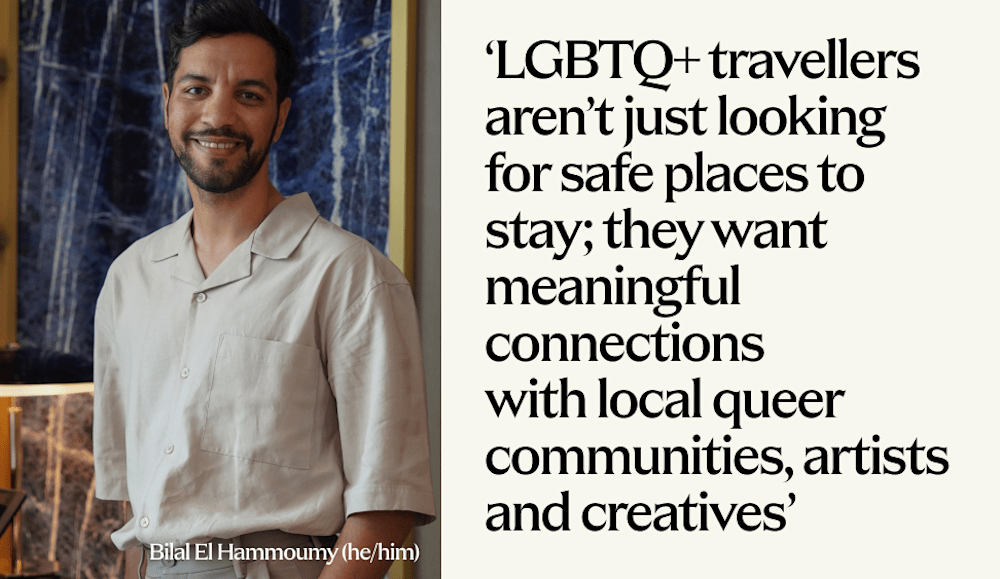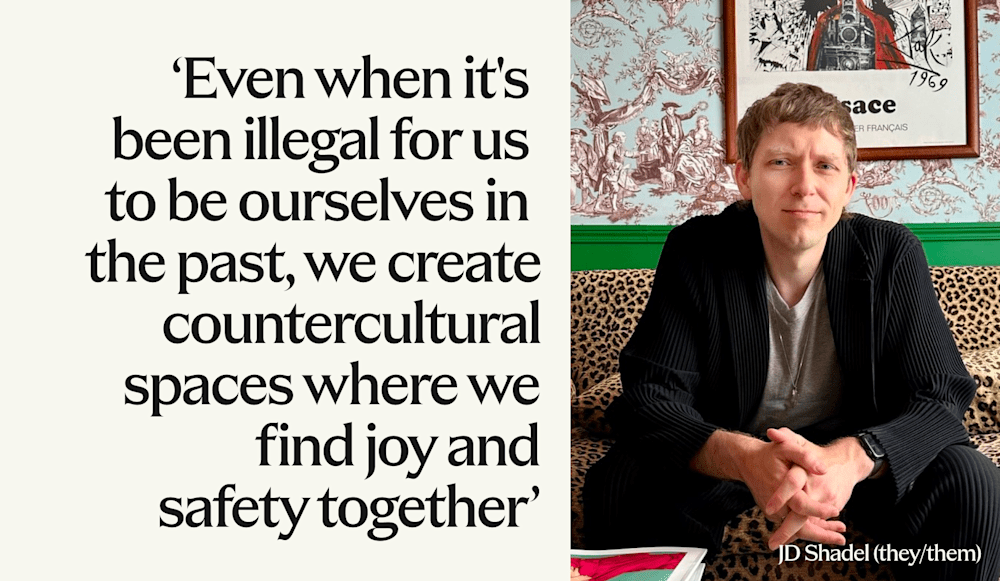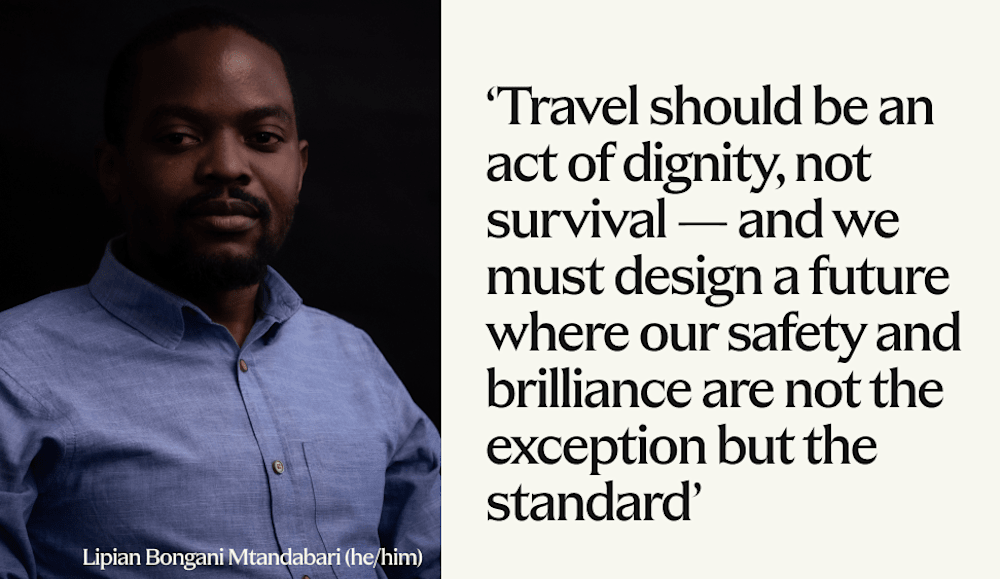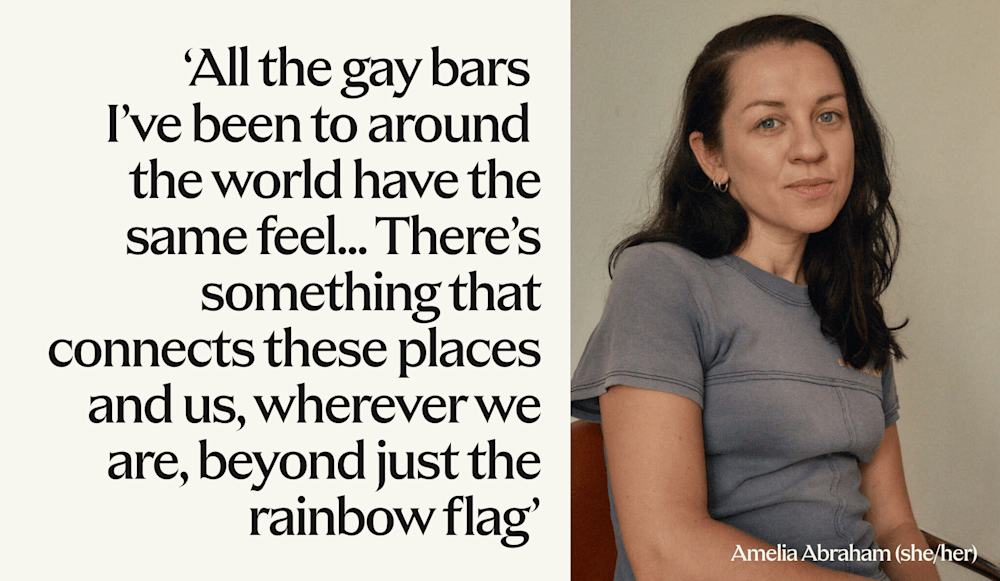Mr & Mrs Smith’s charity partner, the Human Dignity Trust, is a legal juggernaut for the LGBTQ+ community, working to ensure the world stays open — and open-minded — so they can live and travel freely. The Trust supports strategic litigation to fight discriminatory laws in countries that criminalise same-sex intimacy; so far it has secured 14 trial and appeal victories, filed 24 cases and appeals, drafted five protective bills, achieved three landmark court decisions, and unlocked £22 million worth of legal assistance… All pro bono, of course.
Now, at a time when the fight feels more urgent and vital than ever, the Trust’s team has a clear vision for progress: the Trust’s Development Manager Helen Thirlway says, ‘Over the next five years, we will support strategic litigation worldwide to challenge these laws, including key cases already before the courts,’ the Trust’s Development Manager, Helen Thirlway, shared with us. ‘We will assist governments seeking to review and reform laws that criminalise LGBTQ+ people, and help to bring these laws into compliance with international human rights standards, and we’ll run media campaigns to foster greater understanding of and respect for LGBTQ+ individuals.’
It’s a view of the future as bright and bold as the rainbow flag, but there is always work to be done. To celebrate the leaps and bounds forward already made and to highlight how travel can be made even more inclusive, we spoke with LGBTQ+ activists, journalists and industry insiders about their global experiences.
Bilal El Hammoumy
Founder and Travel Director of Inclusive Morocco, the country’s first LGBTQ+ led luxury travel company, who craft custom itineraries covering culture, crafts, cuisine and more

What changes have you seen in LGBTQ+ travel over the last 10 years?
One of the biggest shifts we’ve seen is the move from tolerance to true inclusion. A decade ago, LGBTQ+ travellers were often just looking for places where they wouldn’t feel uncomfortable. Now, there’s a growing expectation for destinations to not only be safe but to actively welcome LGBTQ+ visitors. This is something we’ve worked hard to embed in Inclusive Morocco’s ethos. When we started, there were unspoken barriers; travellers would ask us quietly, ‘Is it okay for us to come as a couple?’ Today, people are confident about travelling in Morocco, and that’s partly because hospitality here has evolved.
Another big change has been the rise of community-driven travel. LGBTQ+ travellers aren’t just looking for safe places to stay; they want meaningful connections with local queer communities, artists and creatives. A big part of what we do is introducing people to the stories that often go untold.
What would you like to see change?
Legal protections are still the most important thing. The fact that so many LGBTQ+ travellers still have to check laws before deciding where to go is disheartening. In the next decade, I’d love to see more progress on decriminalisation and anti-discrimination protections worldwide and especially in Morocco, which we love so much. Beyond that, we want to see a shift in how LGBTQ+ travellers are represented in the industry. It’s about genuine inclusivity at every level, from the people designing the experiences to the front-line staff welcoming guests.
We want more hotels and tour operators to create spaces where LGBTQ+ travellers don’t have to second-guess whether they’ll be treated with respect. Every experience we offer is vetted so that travellers don’t have to do the emotional labour of wondering if they’ll be accepted.
Amsterdam, Berlin and Barcelona have felt incredibly natural in terms of acceptance. But closer to home, we’ve found that certain riads and hotels in Morocco have gone above and beyond to put LGBTQ+ travellers at ease. La Mamounia has been a standout for its discretion and professionalism.
Tell us about your positive and negative travel experiences.
One of the most heartwarming experiences we’ve had was organising a honeymoon for a same-sex couple who initially weren’t sure Morocco would be possible for them. Seeing how their trip unfolded — how warmly they were received, how comfortable they felt — was a reminder of why we do this. It proved that with the right knowledge and partnerships, travel can be inclusive anywhere.
But there have been moments where we’ve felt the weight of being ‘other’, too. We were hiring a new staff member for Inclusive Morocco and explained to an applicant that we are an LGBTQ+ founded and led company, and they expressed that they would be okay working with members of the LGBTQ+ community as long as ‘they don’t touch me’. That drew out the stigma that still exists in countries like ours but also provided a learning experience for that staff member. We hired him because we wanted to provide a space where we can dilute the unfounded stigmas he held.
Are there any formerly no-go countries you’d now visit?
Morocco itself has been on a journey — 10 years ago, it wasn’t a destination LGBTQ+ travellers considered unless they were deeply familiar with it. There’s still a need to navigate things thoughtfully, but we’ve worked hard to show that Morocco can be an amazing, inclusive destination when you know where to go and who to connect with.
JD Shadel
A travel editor, content strategist and culture journalist, founded lifestyle newsletter ESC KEY.CO

What changes have you seen in LGBTQ+ travel over the last 10 years?
The biggest change I’ve observed is the backsliding of support for queer and trans travellers in many parts of the world. This takes the form of rainbow-washing corporations who once bravely wanted to leverage our community’s beauty, diversity and culture for commercial gains, but as soon as the tides turn they’re dropping support to avoid seeming ‘political’, as if the safety and experiences of LGBTQ+ travellers is ‘political’ rather than a fundamental human right that is a collective responsibility to defend.
Worse, many destinations that once created resources for LGBTQ+ travellers have deleted and erased us. At a time when legislation is targeting our community, in particular trans and non-binary people and our loved ones, it’s more important than ever for allies to stand with us, not cower.
What would you like to see change?
I want to challenge all corners of the travel industry — especially editors, journalists and creative leads — to hire queer and trans talent. Give our stories and perspectives the place they deserve in the conversation. As much as I love writing a Pride guide, I am tired of being tokenised for feel-good content then ignored the other 11 months of the year.
Queer and trans travel journalists, photographers and other creative talent deserve a place in this industry. Our stories matter. I would also encourage fellow journalists to seek LGBTQ+ perspectives outside LGBTQ+ content. We’re here. We’re queer. We’ve got talent that deserves to be paid for.
Do you feel safe when you travel?
[It] partly depends on where I go. And it’s not only about the country’s or state’s laws, more so the strength of the queer community. LGBTQ+ people have always travelled, often out of necessity to get out of spaces where we’re not welcomed and to find community. That changes our lives. Even when it’s been illegal for us to be ourselves in the past, we create countercultural spaces where we find joy and safety together.
A point that’s really important for me to stress is that white LGBTQ+ people often go on about their safety concerns without acknowledging the lived reality of LGBTQ+ people who call these places home. They’re the ones dealing with the brunt of abuse. Rarely are wealthy white tourists the targets. [We should] re-center the conversation to ‘What can we, as more privileged travellers, do to support the LGBTQ+ locals? How can we channel financial resources to the organisations supporting LGBTQ+ people on the ground?’ That’s the conversation we need to have.
Lipian Bongani Mtandabari
Founder and Director of Ntsako Travel Africa, an LGBTQ+ friendly luxury travel company specialising in safaris and wilderness camps

What changes have you seen in LGBTQ+ travel over the last 10 years?
Over the past decade, LGBTQ+ travel has undergone a dramatic evolution. We’ve moved from invisibility to increasing recognition in mainstream tourism. There is more sensitivity from travel brands, more queer voices being included in conversations and a slow — but definite — shift in how destinations are approaching inclusion. However, to put it in context: it’s not easy being queer, a person of colour and a businessperson trying to break boundaries in a global industry still dominated by Western narratives. These last 10 years have seen incredible strides, but also a reckoning with whose voices are heard, and whose aren’t. My work at Ntsako Travel Africa is rooted in changing that.
What would you like to see change?
I would love to see true transformation — not just representation, but participation. DEI (Diversity, Equity and Inclusion) must include a global lens. Over the next decade, I want to see funding, opportunity and recognition extended to queer entrepreneurs, activists, and voices from these regions. Travel should be an act of dignity, not survival — and we must design a future where our safety and brilliance are not the exception but the standard.
Do you feel safe when you travel?
Safety is never assumed — especially as a queer African. My travel preparations include risk assessments: researching local laws, reaching out to trusted local contacts, identifying safe zones, and sometimes choosing to present as ‘neutral’. It’s taxing, but necessary. When travelling with my partner, we often make unspoken agreements about when to show affection. It’s something LGBTQ+ people worldwide relate to — but shouldn’t be the norm.
Where have you felt most accepted?
South Africa as a whole stands out, especially regions like Limpopo and the Northern Cape — places often assumed to be conservative, but where I’ve been received with extraordinary warmth and openness. Inclusive hospitality isn’t just about policies — it’s about how you’re made to feel.
Are there any formerly no-go countries you’d now be comfortable travelling to?
Namibia comes to mind. While legal progress is slow, the people and the emerging community dialogues make it feel far more navigable now than even five years ago. With careful planning and community insight, it’s becoming a more viable destination for LGBTQ+ travellers. I will not visit or promote destinations where LGBTQ+ people are persecuted, imprisoned or killed — particularly if those countries actively suppress queer voices while profiting from global tourism. There must be a moral line in the sand. No destination is worth romanticising at the cost of human dignity.
Amelia Abraham
A journalist who has written about LGBTQ+ identity politics and more for The Guardian, Vogue, ES Magazine and iD. She’s also the author of Queer Intentions: A (Personal) Journey Through LGBTQ+ Culture, documenting the mainstreaming of queer culture, which was shortlisted for the Polari First Book Prize

What changes have you seen in LGBTQ+ travel over the last 10 years?
More home swapping, hotel booking and peer-to-peer accommodation-renting platforms offering LGBTQ+ friendly tags, filters and features — so, should you want to, you can seek out that extra sense of a safety net by staying somewhere that has made an explicit commitment towards being welcoming and inclusive.
What would you like to see change in the next 10 years?
I think there’s often a disconnect between some countries that pertain to be ‘progressive’ — for instance where same-sex marriage has long been legalised — and how safe one actually feels there. Many LGBTQ+ rights are being rolled back in the UK and US, and the rise of right-wing governments or movements can present a legislative or physical threat to queer people. More sharing of first-hand experiences, advice and support for LGBTQ+ travellers is important against this backdrop. Particularly for those who present as gender non-conforming or whose ID documents do not reflect their lived gender,
Do you feel safe when you travel?
In places I’m unfamiliar with, I often do a quick assessment of how safe I feel before kissing or holding hands with my partner in public. I’ve had trips where we’ve refrained from any public display of affection, and so I try to think about where I travel to reduce this burden. But overall, maybe because of this cautiousness, I’ve never [experienced] a homophobic experience overseas — more so at home in the UK! My professional life, however, has led me to places like Serbia and Turkey to report on Pride being either under attack or banned, and I have witnessed first hand the police presence and fear at LGBTQ+ gatherings in these countries (Hungary is another place that recently restricted public LGBTQ+ events) but also the resilience of local communities and activists.
[I loved] visiting the Leslie Lohman Museum in New York and Schwules Museum in Berlin — both dedicated LGBTQ+ spaces with amazing programming and events that warmly welcome international LGBTQ+ visitors. [But it’s frustrating] when a hotel automatically books you and your partner into a twin room, and you have to ask for a double. It’s always a relief to visit a hotel that doesn’t make assumptions around gender or sexuality.
Where have you felt most accepted?
I have had unforgettable experiences travelling to places that are known for their LGBTQ+ histories and communities, like Fire Island in New York or San Francisco; places where queer self expression and culture are deep rooted and celebrated. I also find it interesting that of all the gay bars I’ve been to around the world, they usually have the same feel — like there’s something that connects these places and connects us, wherever we are, beyond just the rainbow flag. Talking to other LGBTQ+ people offers a snapshot into local life that adds a deeper dimension to my travel experience.
Mr & Mrs Smith makes an annual donation of £5,000 a year to the Human Dignity Trust. Learn more about our charity partnership here



